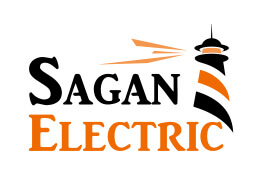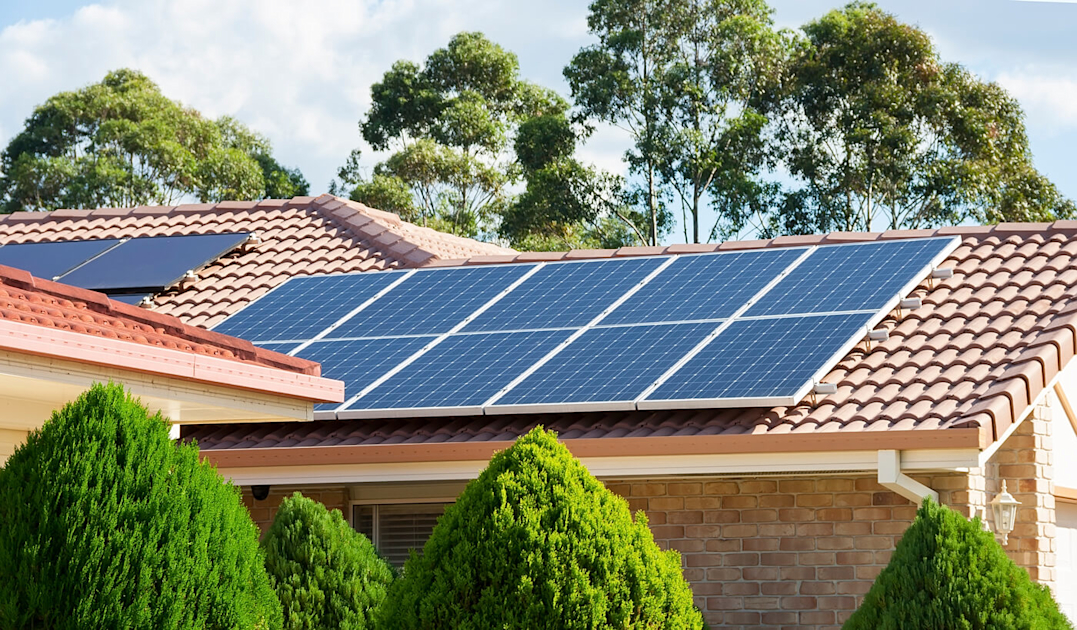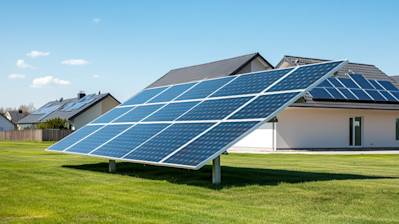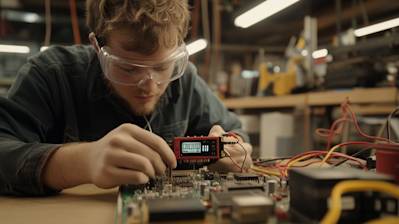Solar energy, one of the fastest-growing sources of renewable energy, has shown remarkable potential in beating the dual-challenges of energy scarcity and environmental pollution. Although traditional solar panel installations have their own merits, the rising interest in solar battery storage requires additional attention. With an increasing number of individuals utilizing solar power at household levels, understanding the concept, significance, and working of solar battery storage has become increasingly important.
The Promise of Solar Battery Storage
Solar battery storage is indeed the future of renewable energy and it unveils a promising part of solar power's appeal, namely: "energy independence." It not only provides a buffer for electrical grid disturbances but also harnesses the potential of solar power to the fullest extent.
So, let's delve deeper into the subject and reveal what solar battery storage can offer as we strive toward creating sustainable energy solutions.
Understanding Solar Battery Storage
To fully appreciate the benefits offered by solar battery storage, we must understand what it is.
Solar battery storage refers to a device that reserves energy produced from your solar panel system for future use. When your solar panels produce more electricity than your home can immediately consume, the additional power can be stored in these batteries.
This stored solar energy can be utilized during hours of darkness, power cuts, or during peak usage times when the cost of electricity from the grid is higher.
Types of Solar Batteries
It's important to note that not all solar batteries are created equal. Major types of solar batteries include:
- Lead acid: This is the oldest type of rechargeable battery. It is reliable, but it generally has a shorter lifespan and lower energy density.
- Lithium-ion: These batteries, well-known because of their application in electric vehicles, have a higher efficiency and longer lifespan than lead acid batteries.
- Saltwater: A relatively new technology, saltwater batteries use saltwater electrolytes. While they are clean and recyclable, their lifespan and performance are currently less than that of lithium-ion batteries.
Components of a Solar Battery Storage System
The prominent components of a solar storage system include:
- Solar panels: These panels generate electricity from sunlight. They are strategically placed to capture the sun's rays.
- Battery inverter: This transforms the energy produced by the panels into a form that can be stored in batteries.
- Solar batteries: These store the excess solar energy produced.
Importance of Solar Battery Storage
Solar batteries serve a purpose far beyond energy storage. They facilitate energy independence, support grid stability, and even have financial implications by reducing your energy costs.
Striving towards Energy Independence with Solar Battery Storage
By storing surplus energy, homeowners gain a degree of energy independence, as they are less reliant on the national grid. This surplus energy can prove abundant during blackouts or when the grid is overworked.
Supporting Grid Stability
Surplus energy stored in solar batteries can be fed back into the grid. This assists in handling grid instability during peak load times and thus, results in a more balanced and steady distribution of power.
Financially Savvy Choice
Those who live in areas with time-of-use rates or demand charges can use stored solar power during peak energy usage times to avoid higher costs. Furthermore, selling the excess electricity back to the grid can also result in decreased energy bills.
Frequently Asked Questions about Solar Battery Storage
What's the Capacity of a Typical Solar Battery Storage?
The capacity of a solar battery is typically measured in kilowatt-hours (kWh). Most home solar batteries have a capacity ranging from 1KWh to 16 KWh. However, to accurately determine what storage capacity would suit your needs, it's essential to look at your household's energy usage patterns and solar panel system's size.
Can a Solar Battery Power My Home During Outages?
Yes, a solar battery storage can power your home during outages. This is one of the main reasons why homeowners opt for solar battery storage systems. When your solar panels produce excess power, this extra energy is stored in the solar battery instead of feeding back into the grid. In the event of a power outage, your solar battery will discharge the stored energy to power your home until the grid power is restored.
How Long Can Solar Battery Storage Supply Power?
The amount of time that a solar battery storage can power your home depends on the battery's capacity and the amount of energy your home consumes. Large-capacity batteries combined with minimal energy consumption could theoretically power your home for a day or two. However, it's wise to have a back-up power solution or a battery with grid connection for prolonged cloudy periods or outages.
Is Solar Battery Storage Worth the Investment?
While solar battery storage may appear to be a hefty investment, considering the long-term benefits may put things into perspective. Solar battery storage enables you to have reliable power supply round the clock, drastically reducing your reliance on grid electricity. This can result in significant cost savings over time, easing the impact of ever-increasing grid electricity prices. It can also increase the value of your property, offering an excellent return on investment.
Can Solar Battery Storage Work with Any Solar System?
The good news is that most modern solar battery storage solutions are designed to be retrofittable, which means they can be added on to your existing solar system. This operation's ease will, however, depend on your current inverter type and whether it is battery-ready or may require an upgrade.
Are There Different Types of Solar Battery Storage Systems?
Indeed, there are different types of solar battery storage systems available. The most common are lithium-ion batteries, which offer high efficiency, longer lifespan, and safer operation. Other types include saltwater and lead-acid batteries. The type of solar battery storage system that is best for you depends on your specific needs, preferences, and budget.
Pros of Solar Battery Storage
Energy Independence
Grid Independence
Solar battery storage allows homeowners to be less dependent on the grid for their energy needs. If there is a power outage, a solar battery can give a home energy security by providing backup power automatically.
Energy Self-Consumption
By storing surplus solar energy, homeowners can use it when the sun isn't shining, providing energy self-reliance. Not only does this help with cost savings by lessening the need for expensive grid energy, but it also gives the satisfaction of utilizing 100% renewable energy.
Financial Savings and ROI
Lower Energy Bills
Through the use of stored solar energy during peak grid times when energy rates are high, homeowners can reduce their electric bills. This ability to shift energy consumption to cheaper times is referred to as load shifting or peak shaving.
Feed-in Tariff Avoidance
Because solar storage allows homeowners to consume most of their solar production on-site, they're less dependent on feed-in tariffs from utilities for excess generation exported to the grid. This is especially beneficial in regions where feed-in tariffs are low compared to retail electricity prices.
Future-Proofing
As energy prices rise and feed-in tariffs fall, investing in solar battery storage future-proofs homeowners against these changes, increasing the return on their solar investment.
Environmentally Friendly
Reduced Production of Greenhouse Gases
By using stored renewable energy instead of grid energy—which often comes from burning fossil fuels—solar battery users help reduce greenhouse gas production.
Local Energy Production
Producing and consuming energy on-site, or locally, is more efficient because there are no losses from long-distance transportation or distribution. This efficiency also reduces the need for additional energy production.
Cons of Solar Battery Storage
Cost and Payback Period
High Initial Investment
The cost of purchasing and installing a solar battery system can be high. It might take several years for the savings on electricity bills to offset the initial cost.
Long Payback Period
Depending on energy consumption habits, local electricity costs, and supplied solar energy, the payback period can be long. If the payback period is longer than the battery warranty period, the battery might need replacing before it pays for itself.
Maintenance and Lifespan
Battery Degradation
Just like any battery, solar batteries degrade over time and their storage capacity diminishes. This means they might need replacing every 10 to 15 years, which can be a significant cost.
Maintenance Costs
Regular maintenance like cleaning, software updates, safety checks, and potential part replacements can add additional costs to the ownership of solar battery storage.
Technical Limitations
Energy Capacity and Efficiency
The amount of solar energy that a battery can store is limited, which can be a challenge during overcast or rainy days, or winter months. As batteries discharge, they also lose some energy as heat, reducing their overall efficiency.
Compatibility Issues
Some older solar systems may not be compatible with certain solar batteries, necessitating expensive retrofitting. Also, not every battery works with every inverter, or can provide whole-home backup power.
Environmental Considerations
Battery Disposal
At the end of their lifespan, solar batteries need to be disposed of or recycled. Currently, solar battery recycling infrastructure is less developed than it is for other electronics, such as mobile phones or laptops. Without proper recycling, retired batteries can have a significant environmental impact.
Summary
So, what's the ultimate deal with solar battery storage? It's pretty clear that this form of renewable energy storage provides a significant positive impact on our environment as it takes significant advantage of the sun's energy. It's like having a never-ending resource at your disposal and it minimizes our reliance on fossil fuels. Moreover, it's not just about saving Mother Earth. For the savvy homeowner, this means serious cost savings on electricity bills, especially in the long run.
In terms of energy efficiency, solar battery storage really pulls its weight. You're practically turning your home into a self-sustaining ecosystem. When there's adequate solar energy generated, the energy gets stored for later use. And the best part is, there's no wasted energy because it's stored right where it's needed. On days when the sun may not be out, stored energy can cover your electricity consumption.
But like any technology, solar battery storage isn't without its challenges. Getting a system set up can commit you to an upfront cost that might feel hefty. There's also the issue of the lifespan of battery cells, as they will degrade over time and need replacing for optimal performance. However, innovation and ongoing development of this technology means these issues will likely be addressed over time, tipping the scales further in favor of solar battery storage. And ultimately, the benefits we've covered - from environmental savings to monetary pluses - underscore why solar battery storage is worth considering.
About Sagan Electric
Sagan Electric, positioned in Sacramento, CA, is your friendly neighborhood electricians offering an array of professional electrical services. Over the years, we've carved a niche for ourselves with our commitment to providing high-quality and efficient solutions for all electrical needs. We are a proudly local company that truly understands and values our community's trust. Our team of highly experienced professionals are just a call away, ready to tackle everything from minor repairs to major installations. At Sagan Electric, we believe in lighting up your homes, your businesses and your lives.
Tags: renewable energy, solar power, energy storage,








